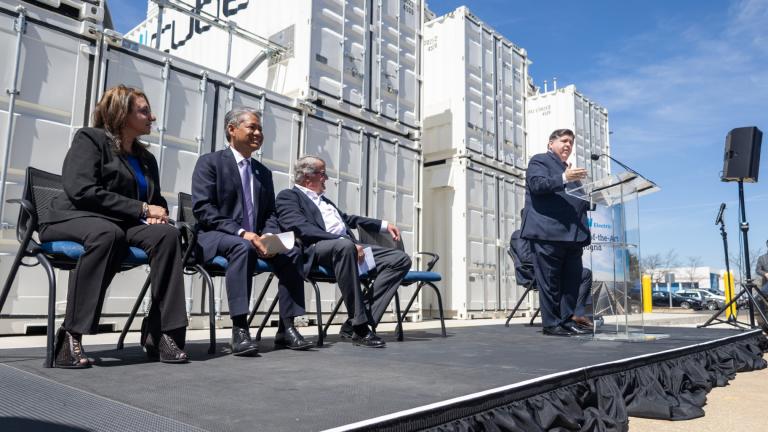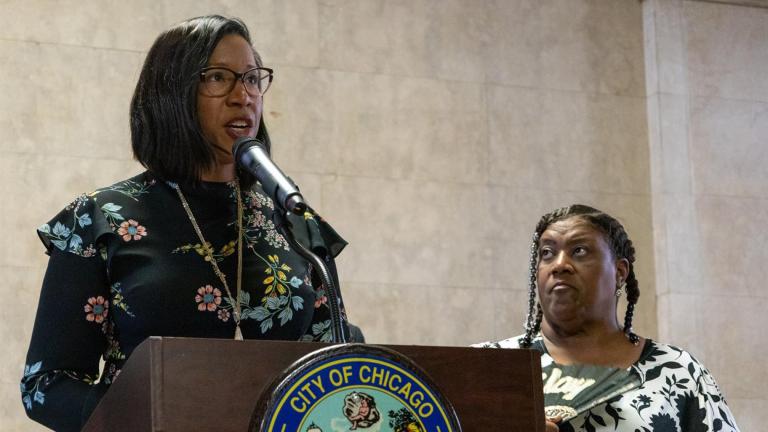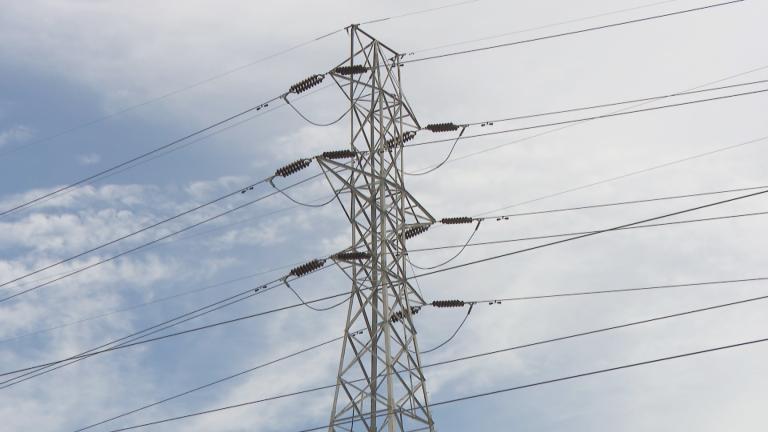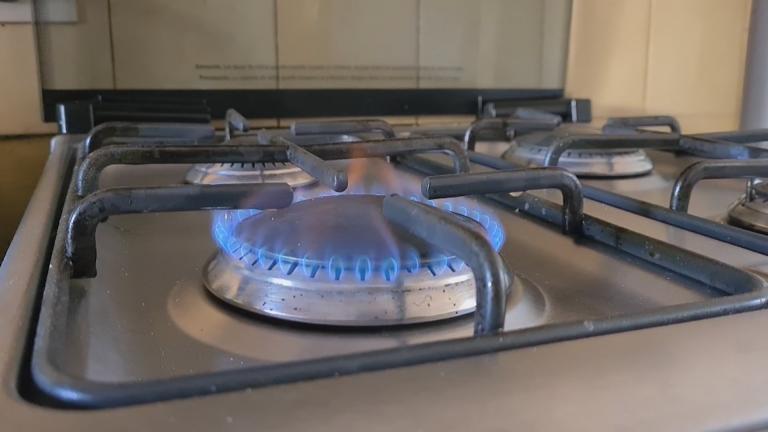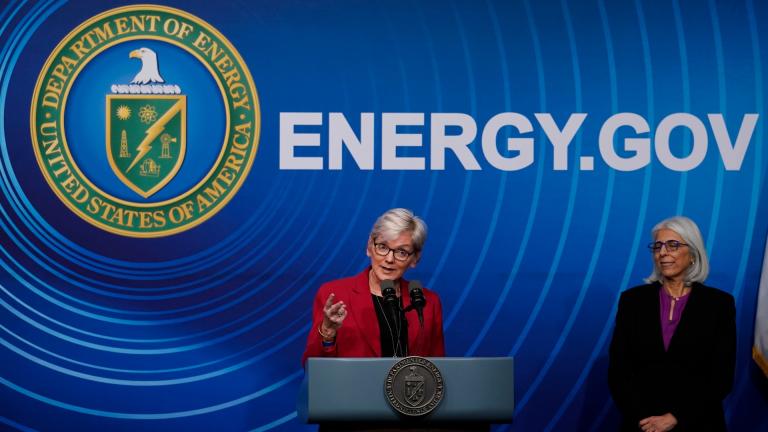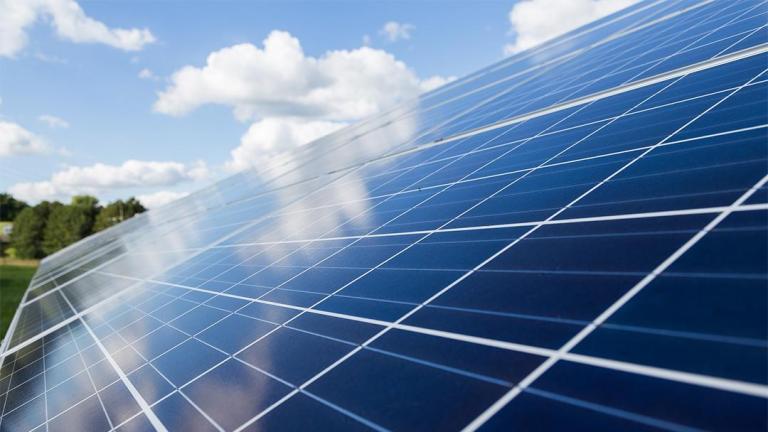Just as you can’t judge a book by its cover, it’s not always wise to judge a law by its title. But a gigantic new energy package signed into law by Gov. J.B. Pritzker on Sept. 15 may live up to its name.
“The Climate and Equitable Jobs Act is, to put it in a nutshell, is a gamechanger,” said Delmar Gillus of the Chicago environmental equity nonprofit Elevate Energy. “It is going to 1) create literally tens of thousands of jobs in underserved and environmental justice communities. It’s going to create opportunities for those that want to get into the space from a job creation, entrepreneurship perspective. CEJA is also going to reduce, significantly, the amount of pollution in underserved communities.”
CEJA sets a goal of 2045 for Illinois to have all its energy from carbon-free sources.
“Because of what we’re talking about, the magnitude of what we’re talking about here in the energy space — I mean we’re talking about powering the entire state of Illinois using green energy. Windmills, solar energy. This is something that’s going to be taking place, dare I say, over the next 30+ years,” State Rep. Will Davis, D-Hazel Crest, said.
Davis said there aren’t currently enough people working in the sector, period – and especially people of color work.
A report by E2 (Environmental Entrepreneurs) found that people of color made up about 27% of Illinois’ clean energy industry.
Revamping the energy sector’s presents an opportunity to change that.
“In the next 10 years, renewable energy businesses are going to create more than 50,000 new jobs: Building projects in every corner of the state,” said Nakhia Crossley of the Solar Energy Industries Association. “We are proud of the diversity and equity commitments in this legislation and we look forward to making sure that as the renewable energy industry grows, it fully reflects the diversity of Illinois.”
Among the equity initiatives included in Public Act 102-0662 are:
— The creation of a “green bank” to provide seed money to help Black and Brown contractors who may otherwise have a hard time raising capital
— Training support for helping formerly incarcerated individuals to enter the clean energy sector
— Setting reporting requirements to make sure the intended diversity goals are met; Illinois will beefing up the renewables industry through financial incentives, but only contractors that meet diversity thresholds will be able to access them
— The allocation of $80 million a year paid by ratepayers to be spent on development programs for individuals from “equity-focused communities”
“We have 13 workforce hubs that will be providing training. They will be providing support for workers, they will be providing things like tools and placement services and retention services and travel stipend and for those that need them, child care,” Gillus said. “There also are going to be workforce hubs that will be providing pre-apprenticeships as well, so that those that are interested in getting jobs in the solar industry, especially from underserved communities, will have access to a plethora of training options and support.”
Other programs are intended for a “just transition,” supporting workers who will lose their jobs when fossil fuel-powered plants close, such as scholarship, health care coverage and employment education.
While CEJA mandates the closure of carbon-emitting plants, many are closing on their own due to market forces. NRG is closing a pair of coal-fired plants in summer 2022, something for which Clean Power Lake County leader Dulce Ortiz has spent years fighting.
According to the U.S. Census bureau, Waukegan has a 17% Black and 55% Latino population.
“I am a Mexican immigrant and having the basic human right to breathe clean air, have clean water and clean soil, and equitable access to the clean energy economy is deeply personal to me,” Ortiz said at the bill signing ceremony last week. “This work helps ensure that Black and Brown sisters and brothers everywhere are empowered to own their own future.”
Ortiz said CEJA’s priority to retiring coal and gas plants in environmental justice communities is a “huge win for Waukegan.”
While 2045 is decades away, a lot of this work is already underway given previous energy laws.
CEJA, with its focus on equity threaded through much of the measures’ complexities, gives a significant boost to those initiatives.
Ratepayers may initially notice the impacts via surcharges on their next electric bills.
As Gillus looks to 2045, he’s excited.
“What I visualize is a clean energy workforce in the state of Illinois that resembles the demographics of the state. I see Black and Brown businesses growing,” Gillus said. “I see Black and Brown contractors being able to hire people from their communities. I see opportunities for the expansion of electric vehicles across the state. I see solar panels in every community.”

